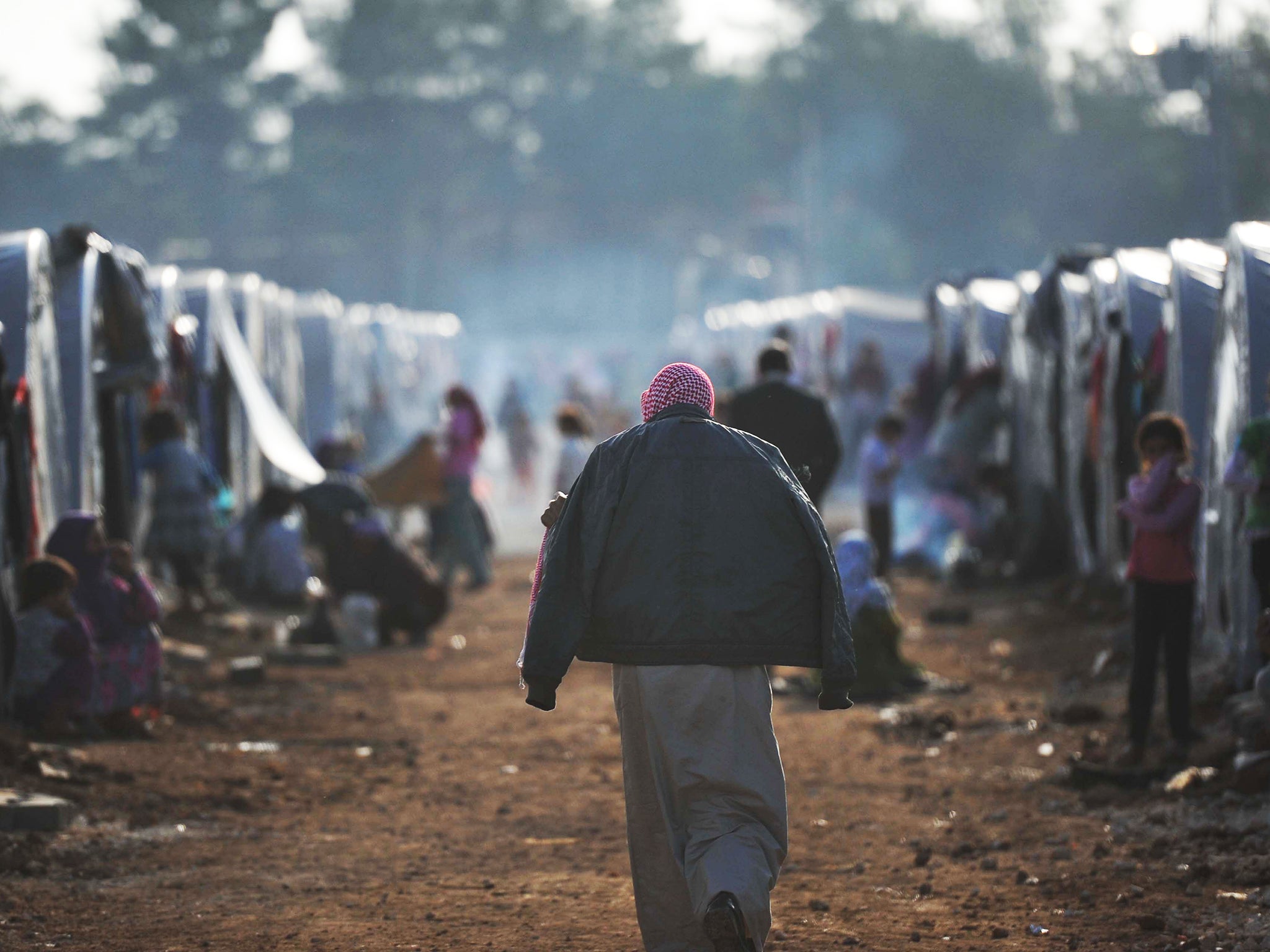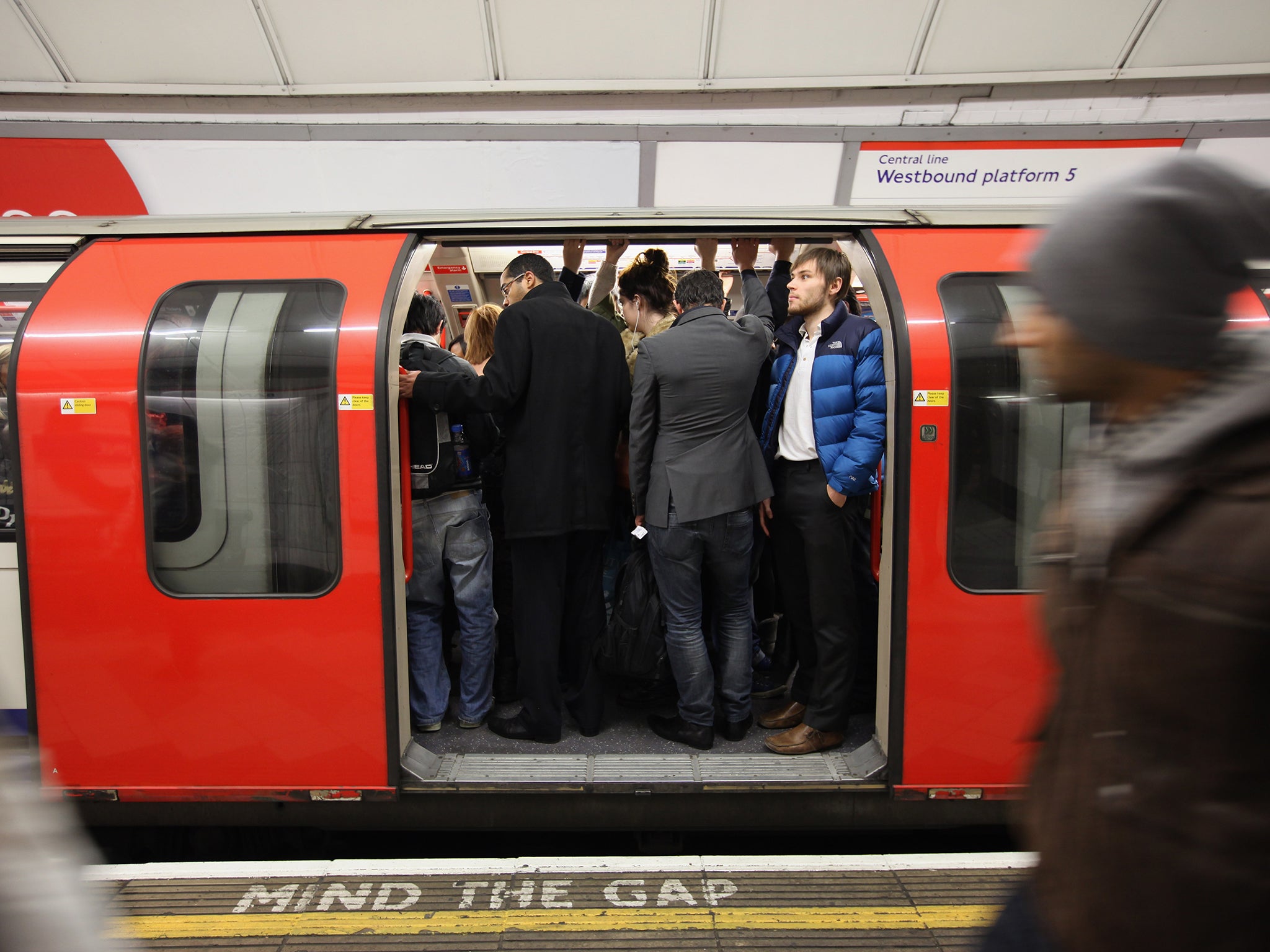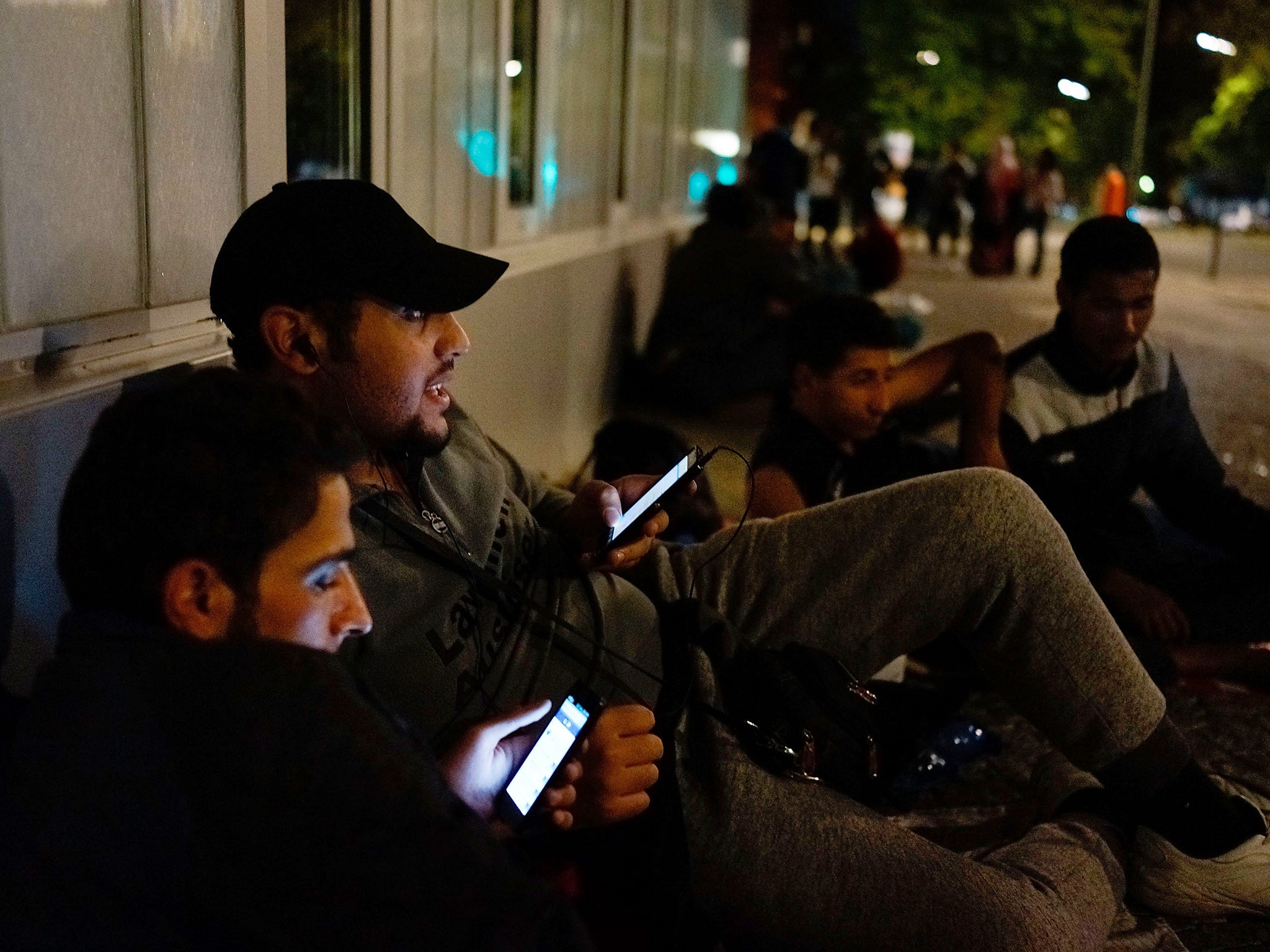Refugee crisis: Number of Syrian refugees Britain has taken in would fit on a Tube train
Nearly 350,000 asylum applications have been filed by Syrians in Europe

Of the 4 million Syrians who have fled their country since the war began, including hundreds of thousands who have poured into Europe, the number who have been resettled in Britain could fit on a single London Underground train — with plenty of seats to spare.
Just 216 Syrian refugees have qualified for the government’s official relocation program, according to data released last week. (Tube trains seat about 300.) British Prime Minister David Cameron has reassured his anxious public that the total number won’t rise above 1,000.
As Germany prepares for an expected onslaught of 800,000 asylum applications just this year, the contrast between the two biggest powers in Europe couldn’t be sharper. On a continent that is supposed to be bound together by a common set of rules and values, the impact of this summer’s migrant crisis is being felt disproportionately by a handful of countries while others, such as Britain, have resisted efforts to more equitably share the burden.
Britain’s approach helps explain why efforts to forge a unified European asylum policy have failed, and it could become a major obstacle to agreement when top officials gather for an emergency meeting later this month.

Although Britain is hardly the only European country that has bucked calls for a more cohesive strategy — many Eastern European governments have been similarly opposed — experts say the island nation’s stance is surprising given its robust economy and its historical role in welcoming refugees.
“This really is a departure from what the U.K. has done in the past,” said Neil Quilliam, an analyst at the London-based think tank Chatham House who has called for Britain to resettle 10,000 Syrians.
But Quilliam said the more miserly policy reflects the political atmosphere in a country where the tabloid press routinely characterizes refugees as an invading army attempting to storm the Cliffs of Dover; the Daily Mail recently wondered why the government could stop Hitler but not “a few thousand exhausted migrants.”
Britain’s leaders have contributed to the mood, with Cameron referring to the migrants as “a swarm” and Foreign Secretary Philip Hammond warning of “marauding” Africans who threaten Europe’s “standard of living.”
“There’s a state of panic in Britain over the issue of migration,” said Franck Duvell, a senior researcher at the University of Oxford’s Center on Migration, Policy and Society. “And it’s being fed by high levels of misinformation.”
New arrivals to the U.K. are unquestionably rising. Britain last week recorded its highest-ever net migration total – 330,000 more people came to Britain than left over the previous year.
But nearly half of those arriving come from other parts of Europe. Refugees from conflict zones in the Middle East, Africa and South Asia account for only a small proportion of the total.
In addition to the 216 Syrian refugees resettled to Britain under the government’s Vulnerable Persons Relocation program, nearly 5,000 others have received asylum after traveling to Britain on their own. (The United States, a country five times the size of Britain, has resettled about 1,500 Syrian refugees, with plans to accept more next year.)
Those numbers all pale in comparison with the figures in Germany and Sweden, which between them have received almost half of the nearly 350,000 asylum applications filed by Syrians in Europe since the war began, according to U.N. figures.
The disparity is only likely to grow after Germany said last week that the government would no longer observe a long-standing policy, known as the Dublin Regulation, which dictates that refugees should seek asylum in the first European Union country in which they set foot. Instead, Syrians will be free to settle in Germany.
The decision was applauded by human rights advocates as a critical step that will eliminate hurdles for legitimate refugees and help to ease the burden on countries along the continent’s southern periphery, where most migrants arrive.
“It’s an example of real political leadership,” said Anna Musgrave, advocacy manager at the London-based Refugee Council.
But it is highly unlikely to be replicated here. Instead, the British government has moved in the opposite direction, resisting calls to expand its resettlement program, cutting the number of visas given to people from war-battered countries and spending millions on enhanced security at Calais, the French port where thousands of migrants have gathered to try to stow away on British-bound trucks.
“They’re making it as difficult as possible for people to arrive here,” said Greg Ó Ceallaigh, an immigration lawyer.
Those who do make it to Britain face a tough battle to stay. The government, he said, has repeatedly tried to send clients from Syria, Iraq and Afghanistan back to countries such as Bulgaria and Italy, where deplorable conditions for migrants await.
Defending policies
British officials have defended the government’s policies, noting that Britain gives more aid to victims of the Syrian conflict than any other European country. Officials also say that helping refugees in neighboring countries such as Lebanon, Turkey and Jordan is a more efficient use of public funds than resettling them in Britain.
But analysts say the country’s restrictive policies toward refugees are largely due to domestic politics.
The British public, Duvell said, has been “traumatized” by the influx of immigrants from Eastern Europe over the past decade, and the government is under pressure to reduce the overall flows. But under the continent’s free-movement principles, Britain can’t keep Europeans out of Britain. So it’s trying to cut the numbers in any way it can, and that has translated into tough restrictions on would-be refugees.

The hostility among Brits toward new arrivals is evident in the pretty seaside town of Whitstable, where government plans to open a new center for under-age asylum seekers has sparked demonstrations. Local residents have raised concerns about the center's proximity to a nearby school and nursery, and the impact young migrants could have on the town’s tourist trade.
“They are going to be hanging around on street corners, in doorways around town,” said Philippa Axford, a 55-year-old pub owner who said she recently had CCTV cameras installed because she was concerned about crime emanating from the migrant center. “It’s going to put people off coming to Whitstable.”
Axford said she believed the refugees are coming to Britain to exploit the country’s generous welfare system: “There are lots of other places in between they could have stopped. They can get money for doing nothing here.”
But experts say that refugees are drawn to Britain because its relatively healthy economy gives them a better chance to work – and because, in some cases, they have no choice.
Ammar, a 28-year-old Syrian refugee, said he was studying in Britain in 2012 when he realized the country’s spiraling conflict would make it impossible for him to return home.
“There was nowhere else to go,” said Ammar, who declined to give his last name because he worried about the repercussions for relatives in Syria.
Having received asylum, he is now pursuing a doctorate in chemistry and is grateful for the opportunities that Britain has given him. But he said he wishes the U.K. would offer those chances to others desperate to escape the violence.
“It’s a human catastrophe,” he said. “More is better.”
©Washington Post
Join our commenting forum
Join thought-provoking conversations, follow other Independent readers and see their replies
Comments
Bookmark popover
Removed from bookmarks